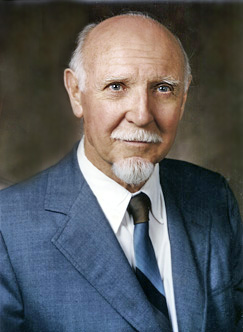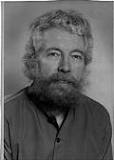Related Research Articles

James Mark Baldwin was an American philosopher and psychologist who was educated at Princeton under the supervision of Scottish philosopher James McCosh and who was one of the founders of the Department of Psychology at Princeton and the University of Toronto. He made important contributions to early psychology, psychiatry, and to the theory of evolution.

James McKeen Cattell was the first professor of psychology in the United States, teaching at the University of Pennsylvania in Philadelphia. He was a long-time editor and publisher of scientific journals and publications, including Science, and served on the board of trustees for Science Service, now known as Society for Science from 1921 to 1944.
Together, legal psychology and forensic psychology form the field more generally recognized as "psychology and law". Following earlier efforts by psychologists to address legal issues, psychology and law became a field of study in the 1960s as part of an effort to enhance justice, though that originating concern has lessened over time. The multidisciplinary American Psychological Association's Division 41, the American Psychology–Law Society, is active with the goal of promoting the contributions of psychology to the understanding of law and legal systems through research, as well as providing education to psychologists in legal issues and providing education to legal personnel on psychological issues. Further, its mandate is to inform the psychological and legal communities and the public at large of current research, educational, and service in the area of psychology and law. There are similar societies in Britain and Europe.

Raymond Bernard Cattell was a British-American psychologist, known for his psychometric research into intrapersonal psychological structure. His work also explored the basic dimensions of personality and temperament, the range of cognitive abilities, the dynamic dimensions of motivation and emotion, the clinical dimensions of abnormal personality, patterns of group syntality and social behavior, applications of personality research to psychotherapy and learning theory, predictors of creativity and achievement, and many multivariate research methods including the refinement of factor analytic methods for exploring and measuring these domains. Cattell authored, co-authored, or edited almost 60 scholarly books, more than 500 research articles, and over 30 standardized psychometric tests, questionnaires, and rating scales. According to a widely cited ranking, Cattell was the 16th most eminent, 7th most cited in the scientific journal literature, and among the most productive psychologists of the 20th century. He was a controversial figure due in part to his friendships with, and intellectual respect for, white supremacists and neo-Nazis.
Herbert Henri Jasper was a Canadian psychologist, physiologist, neurologist, and epileptologist.
This is a bibliography of books by psychologist Raymond Cattell.
Robert Goldstone is a Distinguished Professor of psychology and cognitive science at Indiana University in Bloomington, Indiana. His research interests include concept learning and representation, perceptual learning, collective behavior, and computational modeling of human cognition. He has developed and empirically tested neural network models that simultaneously learn new perceptual and conceptual representations, with the learned concepts both affecting and being affected by perception. He has also developed computational models of how groups of people compete for resources, cooperate to solve problems, exchange information and innovations, and form coalitions.
Quantitative psychology is a field of scientific study that focuses on the mathematical modeling, research design and methodology, and statistical analysis of psychological processes. It includes tests and other devices for measuring cognitive abilities. Quantitative psychologists develop and analyze a wide variety of research methods, including those of psychometrics, a field concerned with the theory and technique of psychological measurement.

Claude Mason Steele is a social psychologist and emeritus professor at Stanford University, where he is the I. James Quillen Endowed Dean, Emeritus at the Stanford University Graduate School of Education, and Lucie Stern Professor in the Social Sciences, Emeritus.
Lewis R. Goldberg is an American personality psychologist and a professor emeritus at the University of Oregon. He is closely associated with the lexical hypothesis that any culturally important personality characteristic will be represented in the language of that culture. This hypothesis led to a five factor structure of personality trait adjectives. When applied to personality items this structure is also known as the five-factor model (FFM) of personality. He is the creator of the International Personality Item Pool(IPIP), a website that provides public-domain personality measures.

Lisa Feldman Barrett is a University Distinguished Professor of psychology at Northeastern University, where she focuses on affective science. She is a director of the Interdisciplinary Affective Science Laboratory. Along with James Russell, she is the founding editor-in-chief of the journal Emotion Review. Along with James Gross, she founded the Society for Affective Science.

John Leonard Horn was a scholar, cognitive psychologist and a pioneer in developing theories of intelligence. The Cattell-Horn- Carroll (CHC) theory is the basis for many modern IQ tests. Horn's parallel analysis, a method for determining the number of factors to keep in an exploratory factor analysis, is also named after him.
The Society of Multivariate Experimental Psychology (SMEP) is a small academic organization of research psychologists who have interests in multivariate statistical models for advancing psychological knowledge. It publishes a journal, Multivariate Behavioral Research.
Wilbert James "Bill" McKeachie was an American psychologist. He served as president of the American Psychological Association, the American Psychological Foundation and the American Association of Higher Education. He was a longtime faculty member at the University of Michigan and the initial author of McKeachie's Teaching Tips: Strategies, Research, and Theory for College and University Teachers, a widely read book on college teaching that was first published in 1951 and more recently in its 14th edition in 2013.
Jeffrey Scott Tanaka was an American psychologist and statistician, known for his work in educational psychology, social psychology and various fields of statistics including structural equation modeling.
Harry Charalambos Triandis was Professor Emeritus at the Department of Psychology of the University of Illinois at Urbana–Champaign. He was considered a pioneer of cross-cultural psychology and his research focused on the cognitive aspects of attitudes, norms, roles and values in different cultures.
Roger Ellis Millsap was an American psychometrician known for his research on measurement invariance.
John Richard Nesselroade is an American psychologist known for his work in developmental and quantitative psychology. He is the Hugh Scott Hamilton Professor of Psychology emeritus at the University of Virginia and an adjunct professor of human development at Pennsylvania State University. He retired from the University of Virginia in June 2011 after serving as the Hugh Scott Hamilton Professor there for twenty years. He is a fellow of the American Association for the Advancement of Science, the Gerontological Society of America, and the American Psychological Association (APA), as well as a charter fellow of the American Psychological Society. He served as president of the APA's Division 20 from 1982 to 1983, and of the Society of Multivariate Experimental Psychology from 1999 to 2000.
Dare Ann Baldwin is a scientist known for her research on learning mechanisms and early social skills of infants and young children. Baldwin is a professor of psychology at Oregon University. Baldwin is the recipient of various awards including the 1994 Boyd McCandless Award from Division 7 of the American Psychological Association, 1995 John Merck Scholars Award, 1997 APA Distinguished Scientific Award for Early Career Contribution to Psychology, 2006-2007 James McKeen Cattell Sabbatical Fellowship, 2006 John Simon Guggenheim Memorial Fellowship, 2006-2007 University of Oregon Fund for Faculty Excellence Award, and 2018 University of Oregon Faculty Research Award.

Werner W. Wittmann is a German psychologist, evaluation researcher and research methodologist.
References
- ↑ "Gerard Saucier". Department of Psychology. University of Oregon. Retrieved June 23, 2017.
- ↑ "Cattell Early Career Research Award". Society of Multivariate Experimental Psychology. Retrieved June 23, 2017.